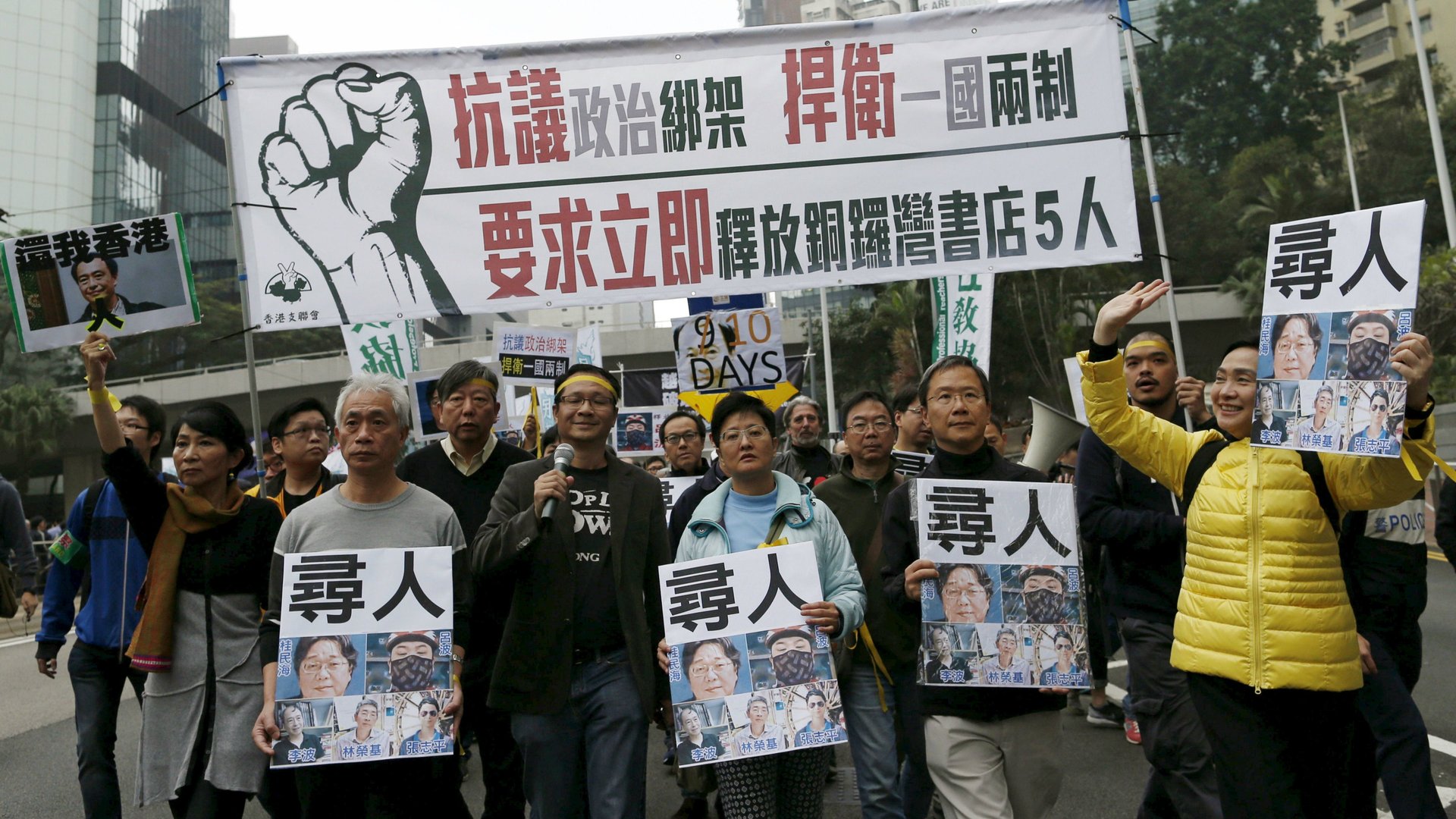One of Hong Kong’s missing booksellers just reappeared to confess to an 12-year-old crime
The missing owner of a Hong Kong bookstore known for publishing books critical of China’s government re-appeared today (Jan. 17) in a taped confession aired on state-run television. He admitted to his guilt in a drunk-driving accident that killed a woman in late 2003.


The missing owner of a Hong Kong bookstore known for publishing books critical of China’s government re-appeared today (Jan. 17) in a taped confession aired on state-run television. He admitted to his guilt in a drunk-driving accident that killed a woman in late 2003.
Gui Minhai, a China-born Swedish citizen who co-owns Causeway Bay Books, was reportedly preparing to publish a book about the love life of Chinese president Xi Jinping. He went missing in October while living in Thailand—where the military junta has proven willing to deport Chinese nationals who run afoul of Beijing—and four of his colleagues have also disappeared from Hong Kong, most recently on Dec. 30.
Gui’s admission bears many of the hallmarks of public confessions in China, which are believed to be coerced by state authorities.
“I have to shoulder my own liability, and I’m willing to be punished,” Gui said, sobbing, in an interview taped in a mainland detention center. “Even though I am a Swedish national, I truly feel that I am still Chinese and my roots are still in China. So I hope that the Swedish side would respect my personal choice, rights and privacy and let me solve my own problems.”
Gui said he had been evading a suspended 2-year jail sentence for drunk-driving in Ningbo, Zhejiang province. But Hong Kong residents were quick to pour scorn on the veracity of the confession:
“Broadcasted confessions are the hallmark of politically-motivated prosecutions: they have increased in frequency since Xi Jinping came to power,” Nicholas Bequelin, Amnesty’s East Asia director, told Quartz in an email.
The disappearance of five booksellers, including Gui, has sparked unprecedented criticism from Hong Kong’s normally pro-Beijing government. After employee Lee Bo went missing on Dec. 30—believed to have been abducted by mainland security officials—Hong Kong chief executive Leung Chun-ying unexpectedly spoke out:
“The freedom of the press, the freedom of publication and the freedom of expression are protected by laws in Hong Kong,” said Leung, who has been unrelentingly derided as a puppet of Beijing. “It is unacceptable if mainland legal agencies enforced law in Hong Kong.”
Two titles were being considered for the book about Xi’s love life, according to Willy Wo-lap Lam, an adjunct professor at the Chinese University of Hong Kong: The Lovers of Xi Jinping or Xi Jinping and His Six Women.
The article incorrectly said earlier the crime Gui confessed to occurred in 2004, not 2003.